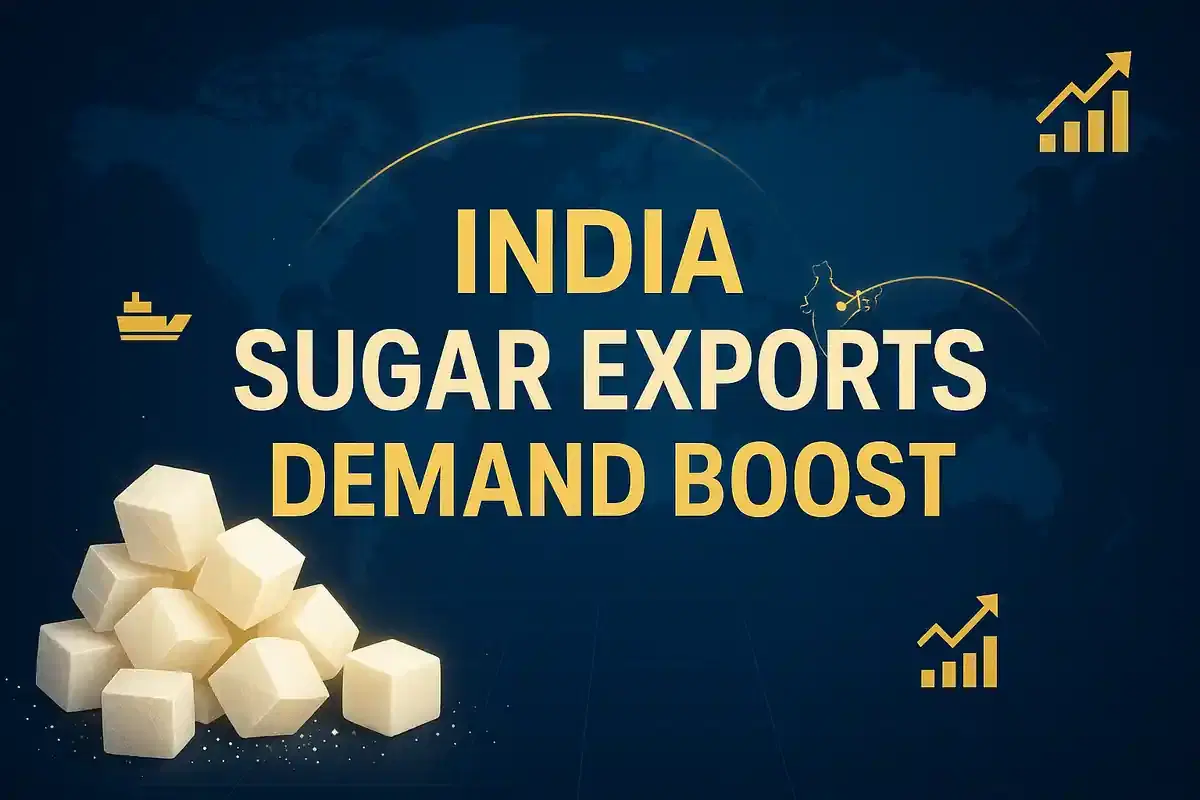Indian Sugar Industry Seeks US, EU Market Access Amid Rising Domestic Stocks
Commodities
|
29th October 2025, 1:43 PM

▶
Short Description :
Detailed Coverage :
The Indian Sugar and Bio-Energy Manufacturers Association (ISMA) has requested the government to negotiate better market access for Indian sugar exports. They are particularly concerned about trade restrictions imposed by major sugar-consuming nations like the United States and the European Union. Madhav Shriram from ISMA highlighted that despite existing Free Trade Agreements, sugar faces unique limitations, with countries like the US and EU enforcing quantitative quotas that cap how much India can sell to them. This puts Indian sugar exporters at a disadvantage. ISMA is actively discussing with the government strategies to overcome these barriers and access these restricted markets more effectively.
Impact This news can impact the Indian sugar sector by influencing future export policies and potentially increasing demand for Indian sugar in international markets if access is improved. It also highlights domestic supply-demand dynamics. If the government allows more exports, it could lead to better prices for domestic sugar producers. For investors, this could mean positive sentiment for sugar companies. Impact Rating: 7/10
Difficult Terms: Quantitative quotas: Limits imposed by a country on the specific quantity of a particular good that can be imported. Free Trade Agreements (FTAs): Pacts between two or more nations to reduce or eliminate barriers to imports and exports, such as tariffs and quotas. Ethanol production: The process of creating ethanol, a type of alcohol, which can be used as a fuel additive or in industrial applications. In India, sugar molasses is a primary feedstock for ethanol. Marketing year: A 12-month period defined for agricultural products to track production, sales, and inventory. For sugar in India, it runs from October to September. Diversion: The act of re-routing a commodity for a different use than its primary intended one; here, using sugar for ethanol production instead of direct consumption or export.